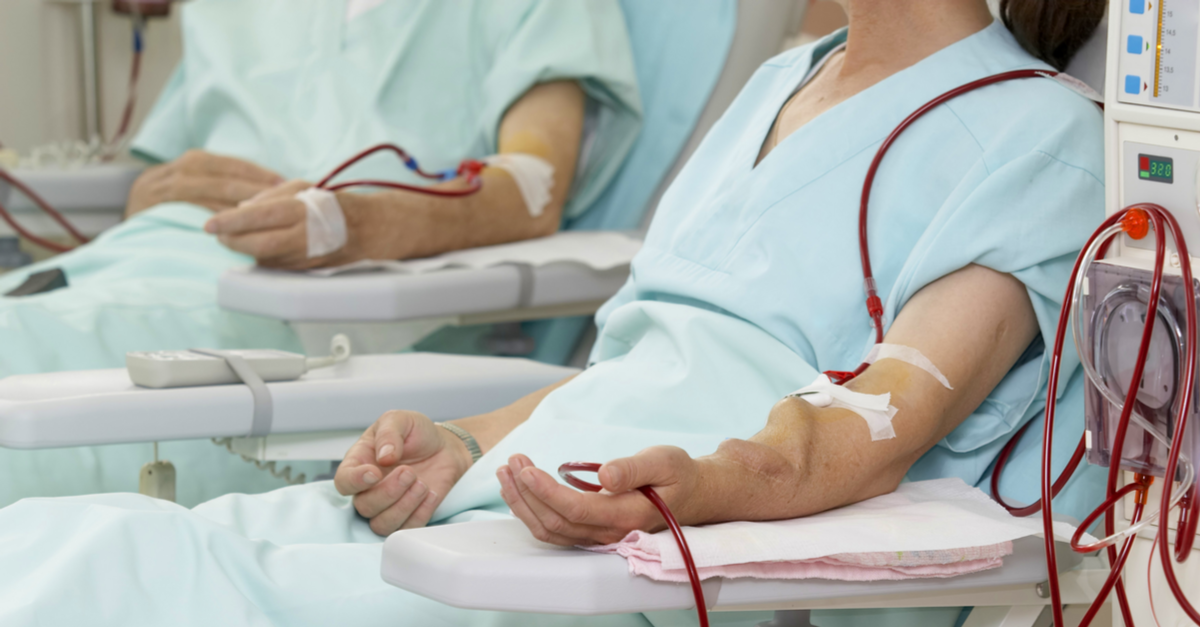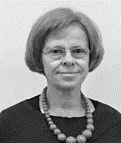liberDi
1133% of funding target


Highlights
Highlights
Life-Changing Technology for Patients Requiring Dialysis
liberDi has developed portable, automatic peritoneal dialysis system (PPDS) for anywhere, anytime dialysis. The system will significantly improve the treatment outcome and quality of life for people with end-stage renal disease (ESRD), who are now forced to travel to dialysis centers several times a week and undergo a tedious treatment of 3-5 hours at a time. liberDi's lightweight system will revolutionize the dialysis market, allowing ESRD patients to receive the highest quality treatment, while maintaining a normal routine of work and daily activities.

Patented technology that enables quality, controlled and effective treatment
liberDi significantly improves the quality of peritoneal dialysis treatments for ESRD patients. The company's innovative patented technology significantly reduces the number of infections in patients resulting from dialysis treatment, and highly increases treatment success rates. The mobile dialysis system enables constant access to treatment, the process is much simpler and faster than the treatments in the clinics, and the system automatically monitors the entire treatment and sends real-time alerts to the patient and to their physician.

A groundbreaking solution for a huge market estimated at $ 60-80 billion a year
Currently, 3.3 million people worldwide suffer from end-stage renal disease, which requires regular life-prolonging dialysis treatment. Every year hundreds of thousand people are staring dialysis treatment, many patients around the world unable to reach a clinic several times a week to receive the necessary treatment. liberDi gives a first of its kind solution to this problem with breakthrough technology that enables at-home high-quality dialysis treatments.
liberDi joins the global trend of home health care
liberDi joins a growing global trend of bringing medical solutions into the natural and familiar home environment, and is breaking into the market with its portable, automatic at-home dialysis system. The innovative device is easy to use, and the only one in the world that automatically monitors the progress of treatment and patient vitals without having to travel to the clinic several times a week for many hours
.jpg)
Great achievement in a short period of time
In a short period of time, and with a small investment, liberDi has developed a working prototype ready for FIH, after recently completed a successful preclinical trial.
A highly experienced team tackling challenges in kidney disease
liberDi’s founder and CEO, Hezkiah Tsoory, is a veteran businessperson with significant experience in leading companies. The company’s advisers are nephrologists (physicians specializing in the kidney) and professors in senior clinical and academic positions at major hospitals in Israel and England. liberDi is supported by the Technion (TRDF), Trendlines and IIA - esteemed investors and co-developers, that have done substantial testing and will continue their financial support of the company.

Pitch
Pitch
When kidney function is impaired, the body is unable to eliminate waste and poisons and excess water from the blood. Dialysis may be required.
Traditionally, dialysis is performed in specialized dialysis centers or at hospitals with dedicated dialysis departments. The person must travel to the center three times a week. Each treatment session lasts about four hours, and often the person suffers from fainting, tiredness, nausea, or vomiting. In fact, some people feel that dialysis takes over their lives.

Peritoneal Dialysis (PD) can be performed at home. It offers improved quality of life at lower cost and better healthcare outcomes.
For a person who needs dialysis, PD
- preserves residual kidney function preservation;
- reduces blood pressure;
- allows for needle-free treatments;
- reduces negative side effects such as nausea, vomiting, cramping, weight gain; and
- delivers a better patient experience and outlook regarding treatment.
But today, only 11% of people who need dialysis receive peritoneal dialysis at home. Today, at-home dialysis requires a sterile setting and is time-consuming set up. With the intricate setup – and the potential for mishandling of the tubing – people undergoing dialysis at home may be prone to infections such as peritonitis.
The Solution
How it works
liberDi significantly improve dialysis patients’ quality of life and reduce healthcare costs
The Technology

How it works – 5 steps:
- Wash hands & Gather supplies
- Drop in the disposable cartridge and place the tubing
- Close the cover
- Connect the catheter
- Press Start
The whole process – runs from setup to finish in approximately 20 minutes.

liberDi’s technology is the game changer the market is looking for, empowering patients requiring dialysis to lead an active life and at the same time, offering a significant cost reduction to healthcare payers around the world.
The automatic portable dialysis system significantly reduces the burden of installing and performing the Peritoneal Dialysis exchanges. liberDi’s solution overcomes the main existing known challenges such as confinement to home or dialysis center, infection of the peritoneal cavity (peritonitis), tube handling, and monitoring.
liberDi system comprises of:
- Portable Peritoneal dialysis machine
- A dedicated one-time use disposable

Advantages:
Safe and easy to use
The automatic dialysis system offers easy setup and maintenance, significantly reducing the burden of installing and performing home peritoneal dialysis. liberDi’s system provides the opportunity for more patients to use and benefit from peritoneal dialysis treatment.
Freedom of movement
The compact and lightweight liberDi system gives patients with end-stage renal disease (ESRD) the opportunity to perform peritoneal dialysis anywhere or anytime – home, office, vacation – for increased freedom of movement and greatly improved quality of life

Infection-control technology
Automatic tube connections reduce unwanted handling errors
Active disinfecting for every exchange eliminates contaminates
Early detection of peritonitis enables early treatment to prevent infection deterioration

liberDi in the Media
Team
Team
|
B.Sc. Mechanical Engineering - Technion - Israel Institute of Technology;
M.Sc. Management - New York University -Tandon School of Engineering.
20+ years’ experience R&D, international business, operations; former executive positions with PV Nanocell, D Medical Industries, MCS, Mentorwave, Power Paper.
Hezkiah is a management executive in medical device and biotechnology ventures. He has strong background in technology, as well as in management, creates a perfect combination to lead entrepreneurial technological ventures
Mr. Tsoory recently co-founded liberDi, a company committed to providing a breakthrough solution with the potential to dramatically improve the lives of people with end-stage renal disease (ESRD). liberDi has developed an automated peritoneal dialysis (PD) system that is small and portable and addresses the adverse side-effects associated with other currently available treatments.
With proven track record in
• Forming international strategic collaborations
• Strategic planning and execution
• Bringing new products to market
• Executing multidisciplinary R&D projects
• Fundraising
|
|
Head of Dialysis Unit, Carmel Medical Center, Haifa, Israel. 20 years’ experience in nephrology.
Internal Medicine, Nephrologist and Hypertension Specialist. Actually Director of Dialysis Unit at the Carmel Medical Center-Haifa, Israel, President of the Peritoneal Dialysis Israeli Commite and Director of the largest Peritoneal Dialysis Unit in Israel.
Former Director in vice of the Nephrology Department at the Carmel Medical Center- Haifa. Participate in Multicenter Clinical Trials and lecturer in the Technion Institute Medicine School and Nurse Schools in Rambam Medical Center, Bnei-Zion Hospital and Emek- Yzrael Accademy .
|
|
Head, Department of Nephrology and Hypertension, Carmel Medical Center. President, Israeli Society of Nephrology and Hypertension. 20+ years’ experience as specialist in nephrology and hypertension
Dr. Frajewicki started his training in Internal Medicine in Buenos Aires, Argentina. He completed his medical formation in the Department of Nephrology and Hypertension at the Carmel Medical Center affiliated to the Technion Institute of Technology in Haifa. He currently is the Head of the Department. His main interests are focusing on clinical and basic research on dialysis, both hemo and peritoneal dialysis. By now Dr Frajewicki is the President of the Israeli Society of Nephrology and Hypertension, dealing with issues of public health in Israel.
|
|
Head of the Institute of Nephrology, Rabin Medical Center (Beilinson & Hasharon hospitals), Petah Tikva, Israel; 30 years clinical and research experience in the field of Nephrology in general, and in peritoneal dialysis in particular
Prof Avry Chagnac is an internationally recognized researcher in nephrology. He previously served as head of the Department of Nephrology at Rabin Medical Center and Tel Aviv University. He has extensive clinical and research experience in the field of nephrology in general, and in peritoneal dialysis in particular. He has authored or co-authored more than 100 publications. He served as chairman of the Israeli Peritoneal Dialysis Committee. In 2018 he was awarded a prize by The Israeli Society of Nephrology for his contribution to research in nephrology.
|
|
Head of peritoneal dialysis unit, Imperial College Kidney and Transplant Centre, Hammersmith Hospital, London, UK. Co-organiser of UK PD Academy. Extensive research and education related to outcomes of older patients on dialysis. Chair of the guidelines committee, International Society of Peritoneal Dialysis
A clinical nephrologist with an international reputation in peritoneal dialysis (PD). She is currently chair of the clinical guideline committee for the International Society of Peritoneal Dialysis. She is the head of the PD programme at Hammersmith Hospital, London, UK (currently 150 patients) and is an honorary professor of renal medicine at Imperial College London. She has been the lead investigator of key multicentre studies related to PD including the European APD Outcome Study (EAPOS). She initiated the development of assisted PD in the UK. She has been on the organising faculty of the UK PD Academy since its initiation in 2000, published more than 150 papers and published several books, including the Oxford Handbook of Dialysis (now in 4th edition).
|





